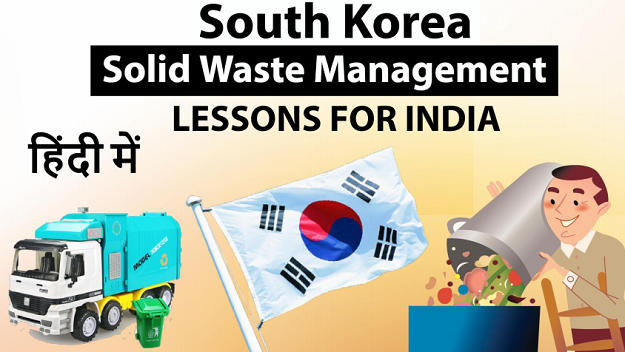Warning: Undefined array key "file" in /var/www/html/wp-includes/media.php on line 1712
Deprecated: preg_match(): Passing null to parameter #2 ($subject) of type string is deprecated in /var/www/html/wp-includes/media.php on line 1712
Warning: Undefined array key "file" in /var/www/html/wp-includes/media.php on line 1712
Deprecated: preg_match(): Passing null to parameter #2 ($subject) of type string is deprecated in /var/www/html/wp-includes/media.php on line 1712
Table of Contents
Waste generation by India
• Everyday: 150,000 tonnes of municipal solid waste (MSW)
• Mumbai: world’s 5th most wasteful city
• Collection: 83%
• Treated: 30%
• World Bank: by 2025 will generate 377,000 tonnes/day
Tangible results
• Consequences are real and troubling.
• Most noticeably, urban waste has significant effects on our health.
• Ghazipur landfill site in Delhi, where waste burning is amajor contributor to the air pollution crisis.
• Bengluru’s lakes catching fires
• Blockage of gutter pipes were one of the main culprit behind recent urban flood in Mumbai.
Shocking facts-
 Swachh Bharat Abhiyan programme
Swachh Bharat Abhiyan programme
• A noteworthy first step from the Narendra Modi government
• The Clean India Dashboard tracks achievements, 24×7.
• 51,734 out of 82,607 wards, now have 100% door-to-door waste collection.
• 33,278 in November 2015
• 88.4 megawatts (MW) of energy is generated from waste-to-energy (WTE)
South Korea–
• Across this relatively small land mass is home to over 50 million people, around half of whom
live in the Seoul capital area, the second largest city in the world with more than 25 million residents.
• Since the mid-1980s,
• Landfill rates drop from over 90% to under 10%
• Recycling rates have grown from under 10% to over 80%.
Legislation
•Government’s approach to legislation has played a central role in transforming the country’s approach to waste, setting the path towards a zero waste society.
•Government had to first adopt a new paradigm in terms of how it saw its waste.
“I think both technology development and legislation have affected the decrease in landfill by increasing recycle rate,” says Yong-Chil. “However, the legislation came first to be enforced with supporting technology and utilisation.”
From Seclusion to Reduction
• Waste Management Law, 1986
• Filth and Cleaning Law (1973): general waste
• Environmental Protection Law (1963): industrial waste “nice and not dirty”
•Not just about containment, but about reducing waste in general.
• ‘Rs’: Reduce, Reuse, Recycle.
•One important law the government introduced during this period was the Act on Resource Saving and Recycling Promotion, enacted in 1992
You pollute, you pay
• Volume-based garbage rate system for household waste, using the concept of polluter pays.
•Under the law, each household needed to buy designated garbage bags at a supermarket and could only discharge waste using the prepaid bags.
Change in results
• Food waste, which used to be treated at sewage plants and dumped in the sea, is now mostly recycled as animal feed or compost.
• To make residents feel the pinch, the city government has also raised prices of food waste bags by 30 per cent since the start of the year. “People used to buy a lot of food and throw away leftovers without much care. After realising they have to pay for how much they throw, they have started to control their food purchase,”
 Industrial level
Industrial level
• At the industrial level, in the same year the government introduced legislation to promote extended producer responsibility (EPR).
•In the past industrial waste was only legislated where is constituted a hazard.
•Under the new framework, all waste produced at the production level was classified as industrial, regardless of weather it was hazardous or not, making companies fully accountable for all the waste they produced.
Resource Circulation Society
• A new set of laws will now consider waste as an important national resource.
•‘The Promotion Law for Achieving a Resource Circulation Society’: integrates all existing laws, taking the fundamental approach that waste needs to be used more efficiently.
 Coming back to India
Coming back to India
•Over 377 million urban people live in 7,935 towns and cities and generate 62 million tonnes of municipal solid waste per annum.
•Only 43 million tonnes (MT) of the waste is collected, 11.9 MT is treated and 31 MT is dumped in landfill sites.
• Solid Waste Management (SWM) is one among the basic essential services provided by municipal authorities in the country to keep urban centres clean.
• The problem is how to integrate the technology with a system of household-level segregation so that waste does not end up in landfills, but is processed and reused.
•It is clear that there will be no value from waste, as energy or material, if it is not segregated.
• The easier solution is to collect and dump.
•If waste is not segregated then it will make poor quality fuel.
Panaji
• Municipal officials have ensured a citywide system that is designed to collect household waste on different days for different waste streams.
• This ensures separation.
• Penalties for non-segregated waste
• Promoted colony-level processing as well
• Commercial establishments such as hotels it has a bagmarking system so that any non-compliance can be caught and fined.
Kerala’s Alappuzha
• Segregation happens differently
• Municipality does not collect waste because it has no place to take it to for disposal.
• Manage your waste, or be drowned in it.
• They segregate and compost what they can.
• Non-biodegradable waste government has stepped in.
• It promotes collection through the already well-organised informal waste-recycling sector.
Tipping fee
•Higher the volume brought the greater the financial reward.
• City municipalities also find that the collection, transport and dumping of waste is an easier proposition than processing it for reuse.
• Reverse the process.
• We need to turn the system of garbage management on its head.


























 WhatsApp
WhatsApp